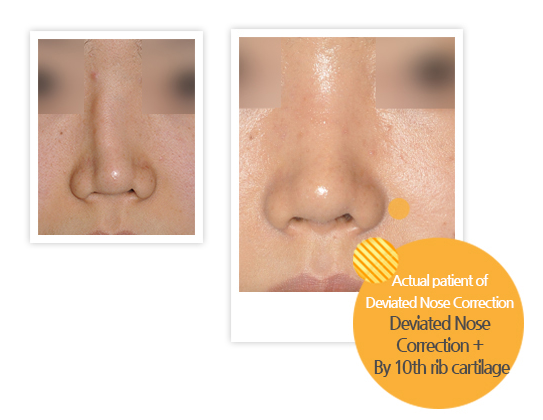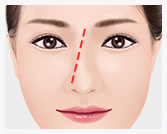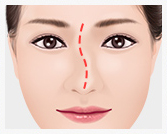
◆ Surgical information
Specialized Surgeon Dr. Jae Hoon Kim Chief director Anesthesia : IV Sedation + Local Anesthesia Post operative treatment visits : 3-4 times Stitches removal : 5-7 days after Recovery care : Bruising and swelling care |
◆ What is Deviated Nose Correction?
|
Since nose is in the center of the face, deviated nose affects the overall face and its impression. Deviated Nose Correction should consider not only the aesthetic side but also the functional aspect. Deviated septum inside the nose should be corrected at the same time. |
◆ APRIL 31 CAUSE AND SYMPTOM OF DEVIATED NOSE
The Difficulty of Correction depends on the level of deviation |
||||||
1. Cause CONGENTAL ASYMMETRY, ACQUIRED FROM EXTERNAL IMPACT 2. Symptom |
||||||
|
◆ When Deviated Nose Correction in needed and surgical method
Nasal Structure is made of nasal bone, tip cartilage, septum and upper lateral cartilage. Where the deviation took place, level of the deviation and existence of nasal septum deviation should be considered for choosing the surgical method. |
||
|
1. Slight Deviation ▶ Method of Correction Carve the silicon implant according to the deviation and insert it to make the nose look straight. When the level of right and left side is different, cartilage or fascia can be applied to make it look less deviated. |
|
|
2. Severe Deviation ▶ Method of Correction Complicated surgical methods such as lateral osteotomy with septum plasty or dissection and replacement of lateral cartilage should be done. Have advantage of straightening the nose with no possible recurrence. |
|

01. Examine the nose condition, bone structure and soft tissue through 3D CT scanning |
02. Consult with Rhinoplasty Specialist Dr. Jae Hoon Kim |
03. Devise a surgery plan suitable for each patient |
04. Perform surgery and monitor recovery |











